How to Effectively Protect a Website From Hackers

Cybercrime and hacking have become all too common in today’s online world, and even the statistics are frightening. There’s an ever-growing need to protect ourselves, our private information, and our data in such a world.
Website owners know this better than anyone. Today, they must be even more vigilant than ever, as they’re responsible for other people’s data.
That’s why running a successful website today requires much more than making one. You’ll need sufficient security measures to stay ahead of malicious users and protect your website from growing data breaches and hacks.
How can you protect your website, though?
10 ways you can instantly protect your website from hackers
Since cybercrime has been on the rise, it’s essential to safeguard your digital valuables. Some ways to achieve high-end protection include security plugins, regular updates, HTTPS, securing passwords and file permissions, backups, scans, firewalls, avoiding vulnerable plugins, and enabling 2FA. Practicing these will ensure a safe and secure website.
- 1. Use important security plugins
- 2. Update everything regularly
- 3. Add HTTPS to your site
- 4. Secure passwords and use information responsibly
- 5. Secure file permissions
- 6. Perform automatic backups
- 7. Scan your website regularly
- 8. Use a firewall
- 9. Avoid plugins with security vulnerabilities
- 10. Add two-factor authentication
1. Use important security plugins
Security plugins are essential to securing a website and protecting it from hackers. Use them to your advantage, and you’ll ensure all communication between the website and its users is encrypted and secured.
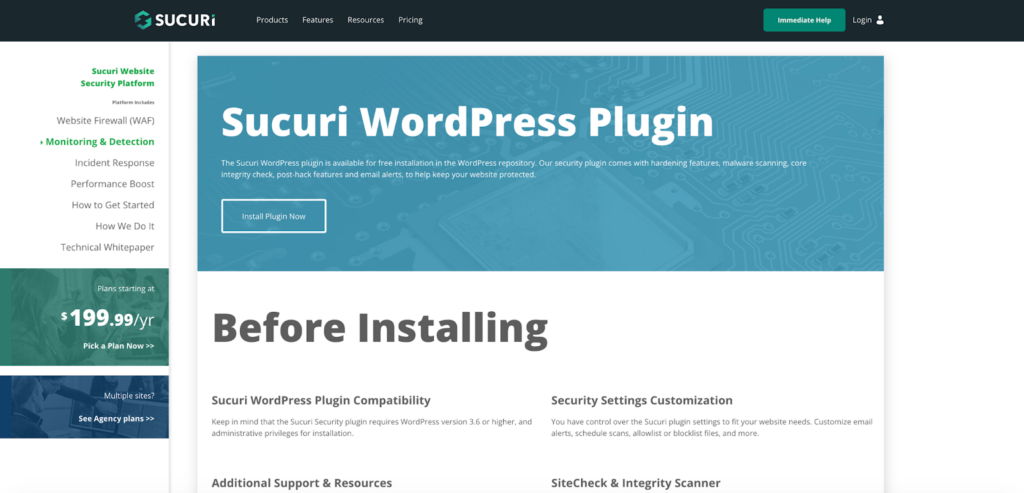
These plugins can help ensure that the information being exchanged doesn’t fall into the wrong hands, protecting you, your website, and users from hackers.
Secure your website with the Sucuri plugin2. Update everything regularly
When software engineers notice vulnerabilities, they start working on updates to patch these holes. Sometimes that can take weeks or months, but more often than not, a security update will be available to all users in hours or days.
Regardless of how long these updates take to arrive at your doorstep, you must regularly update your software to avoid possible threats to your site and data. Moreover, that applies to more than just your server’s operating system. You should also regularly update any software you’re running on said server.
3. Add HTTPS to your site
As the older HTTP protocol is on its way to retiring, all website owners should start using the newer, much more secure HTTPS. Compared to the older HTTP protocol, the “S” in HTTPS stands for “Secure.”
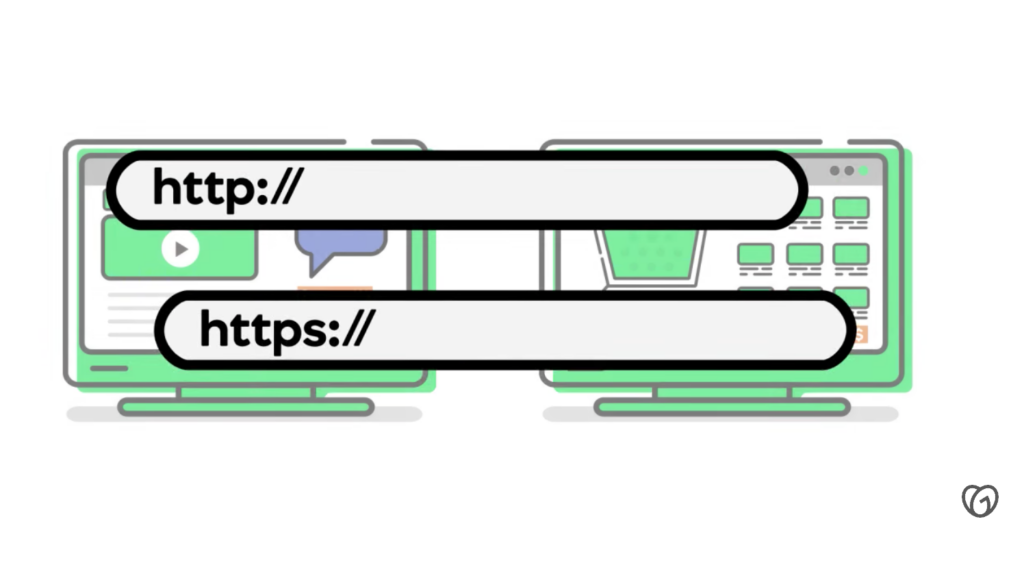
The newer HTTPS uses encryption methods and adds an extra layer of security by adding SSL certificates. That ensures the user connects straight to the website they want to visit, and no one else can.
Choose The Right SSL Certificate For Your Website Using GoDaddy4. Secure passwords and use information responsibly
As most people are lazy when it comes to passwords and often use the same passwords for almost every online account, it makes it incredibly easy for a hacker to gain access. If you’re using a “password123” or anything similar, you’re doing it wrong.
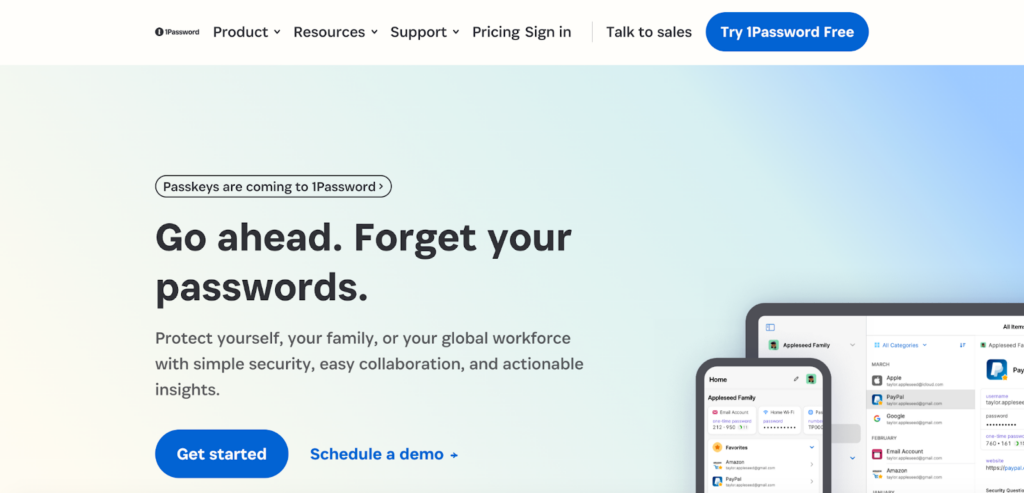
Instead, use strong and long passwords with a mix of numbers, letters, and symbols. You could also use a trustworthy password manager. That ensures your passwords can’t be cracked with a simple brute-force attack.
Secure your passwords with 1Password – The best password manager5. Secure file permissions
Certain website files should only be accessed by specific users, and looking into these thoroughly can give you an extra layer of protection against hackers.
Ensure that you only give the necessary permissions to your website visitors, as having unnecessary permissions can be a massive vulnerability that hackers can exploit.
6. Perform automatic backups
Suppose a hacker gains access to your website. In that case, they’ll likely steal personal information to rob users later. They’ll also delete as much evidence as possible, often deleting entire websites.
Moreover, deleting the website can also be your way of preventing further damage.
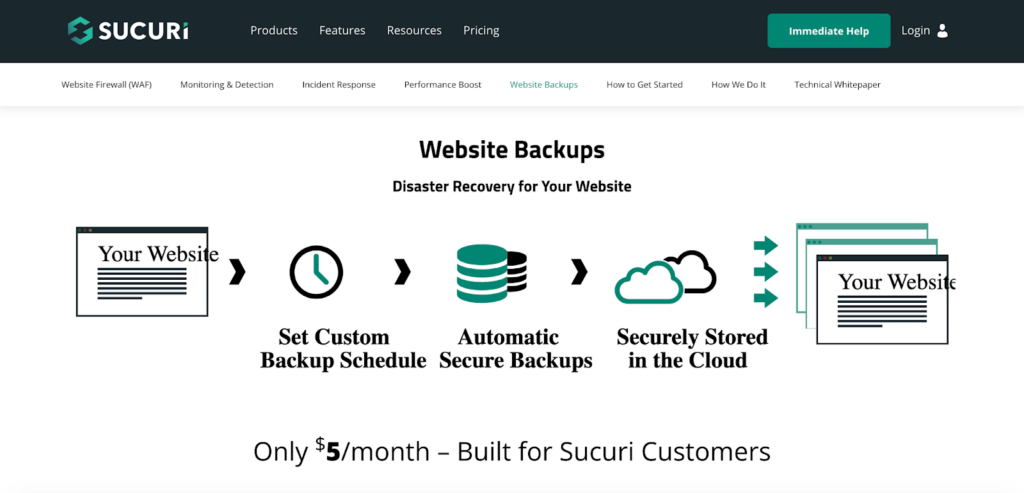
That’s why having a backup is essential. It’ll let you quickly recover any data after the hack and rebuild your website. Consider setting up automatic and scheduled backups with Sucuri to prevent more extensive data loss.
Keep your website backed up with Sucuri7. Scan your website regularly
Implementing data scanners can be incredibly valuable to the website’s security. It involves scanning all data uploaded to the website, as these files may contain malware that can infiltrate and wreak chaos on your website.
Moreover, consider storing uploaded files on a separate location or drive, as it can help prevent possible malware from affecting your system files.
8. Use a firewall
Firewalls are one of the most important aspects of protecting your website from hackers. They look out for suspicious and bot-like requests and block anything that seems malicious. Adding a firewall can be an excellent way to add security.
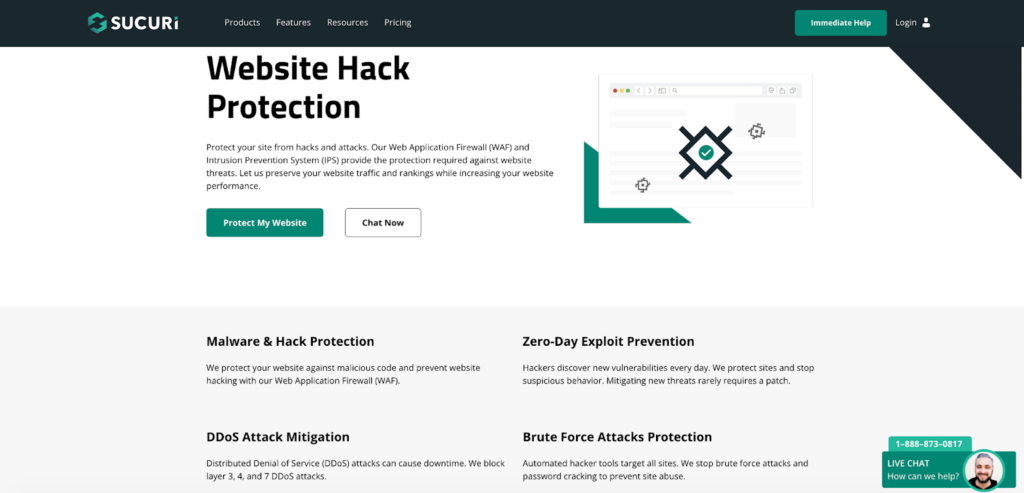
Even if most firewalls allow users to change various settings and add exceptions, you shouldn’t do that. Get a firewall and let it do its job. Unless you’re a website security expert, there’s no need to change anything.
Protect your website from hacks and attacks with Sucuri9. Avoid plugins with security vulnerabilities
Website running is primarily automated nowadays, and website owners mainly use plugins to help with such processes. However, plugins can be a massive vulnerability as they can allow nefarious users to access the website through them.
You should only use plugins from creators you trust to ensure proper website security. There’s a reason why many of these aren’t free, as a lot of time, effort, and work goes into ensuring they work correctly and are appropriately secured.
10. Add two-factor authentication
The website’s security will largely depend on who can access valuable information in the first place. That’s why adding two-factor authentication (2FA) as an extra layer of protection ensures that only wanted users can access certain parts of the website.
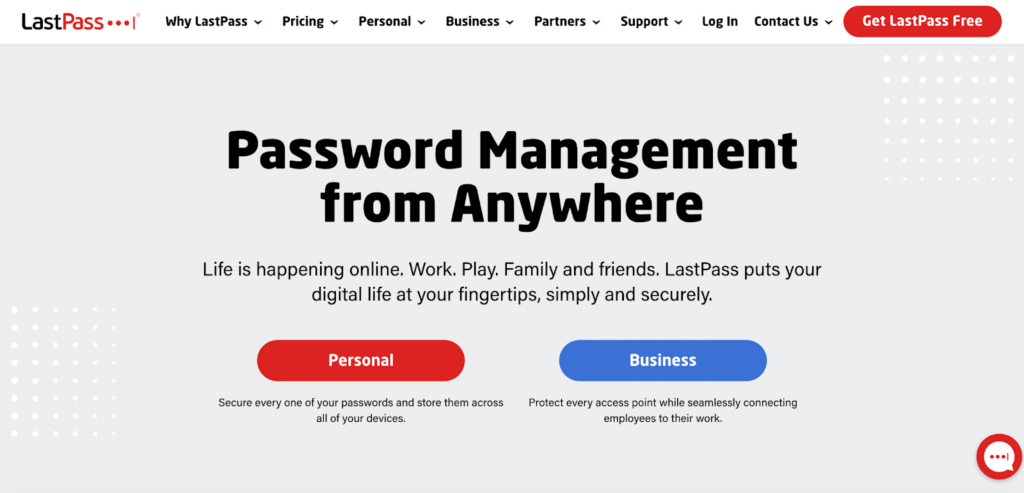
There are various versions of 2FA, including free ones, but using a trustworthy, credible, and paid version can help boost your website’s security in the long run. Implementing this on any website with logins is an excellent idea.
Improve your online security using two-factor authentication by LastPassConclusion
Being a website owner is more than just creating a website. You’ll need to secure it to protect it from hackers and malicious users, as you’re responsible for your users’ data. That’s why we’ve reviewed the top ten ways to enhance your website’s security and prevent nefarious attacks.
Following these tips won’t protect you forever, as hackers are becoming more persistent than ever and are constantly finding new ways to breach our walls. Still, it’ll undoubtedly boost your website’s security and protect your data by a massive margin.
